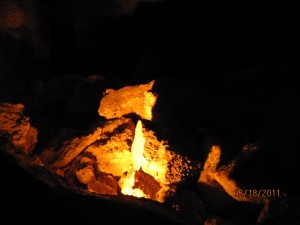 Images carved from timber by craftsmen and adorned with silver and gold for the purpose of worship “can do no harm and they have no power to do good.” (Jeremiah 10: 5) Do not be awed by them or “by signs in the heavens.” (Jeremiah 10:2) These idols can not speak and can not walk. Others must speak on their behalf, and carry them from place to place. “The figures [a man] casts are a sham, there is no breath in them. They are worth nothing, mere mockeries, which perish when their day of reckoning comes.” (Jeremiah 10:14,15) “They can no more speak than a scarecrow in a plot of cucumbers.” (Jeremiah 10:5) People who worship these images carved by men “are fools and blockheads one and all, learning their nonsense from a log of wood!” (Jeremiah 10:8)
Images carved from timber by craftsmen and adorned with silver and gold for the purpose of worship “can do no harm and they have no power to do good.” (Jeremiah 10: 5) Do not be awed by them or “by signs in the heavens.” (Jeremiah 10:2) These idols can not speak and can not walk. Others must speak on their behalf, and carry them from place to place. “The figures [a man] casts are a sham, there is no breath in them. They are worth nothing, mere mockeries, which perish when their day of reckoning comes.” (Jeremiah 10:14,15) “They can no more speak than a scarecrow in a plot of cucumbers.” (Jeremiah 10:5) People who worship these images carved by men “are fools and blockheads one and all, learning their nonsense from a log of wood!” (Jeremiah 10:8)
“But the Lord is God in truth, a living god, an eternal king.” (Jeremiah 10:10) “He is the maker of all.” “The Lord of Hosts is His Name.” (Jeremiah 10:16)
“Hark, a rumour comes flying, then a mounting uproar in the land of the north, an army to make Judah’s cities desolate, a haunt of wolves. I know, O Lord, that man’s ways are not of his own choosing; nor is it for a man to determine his course in life. Correct us, O Lord, but with justice, not in anger, lest Thou bring us almost to nothing.” (Jeremiah 10:22-25)
“But now this is the Word of the Lord, the Word of your creator, O Jacob, of Him who fashioned you, O Israel: Have no fear; for I paid your ransom; I call you by name and you are My own. When you pass through deep waters, I Am with you, when you pass through rivers, they do not sweep you away; walk through fire and you are not scorched, through flames and they do not burn you. For I Am the Lord your God, the Holy One of Israel, your deliverer.” (Isaiah 43:1-3)
